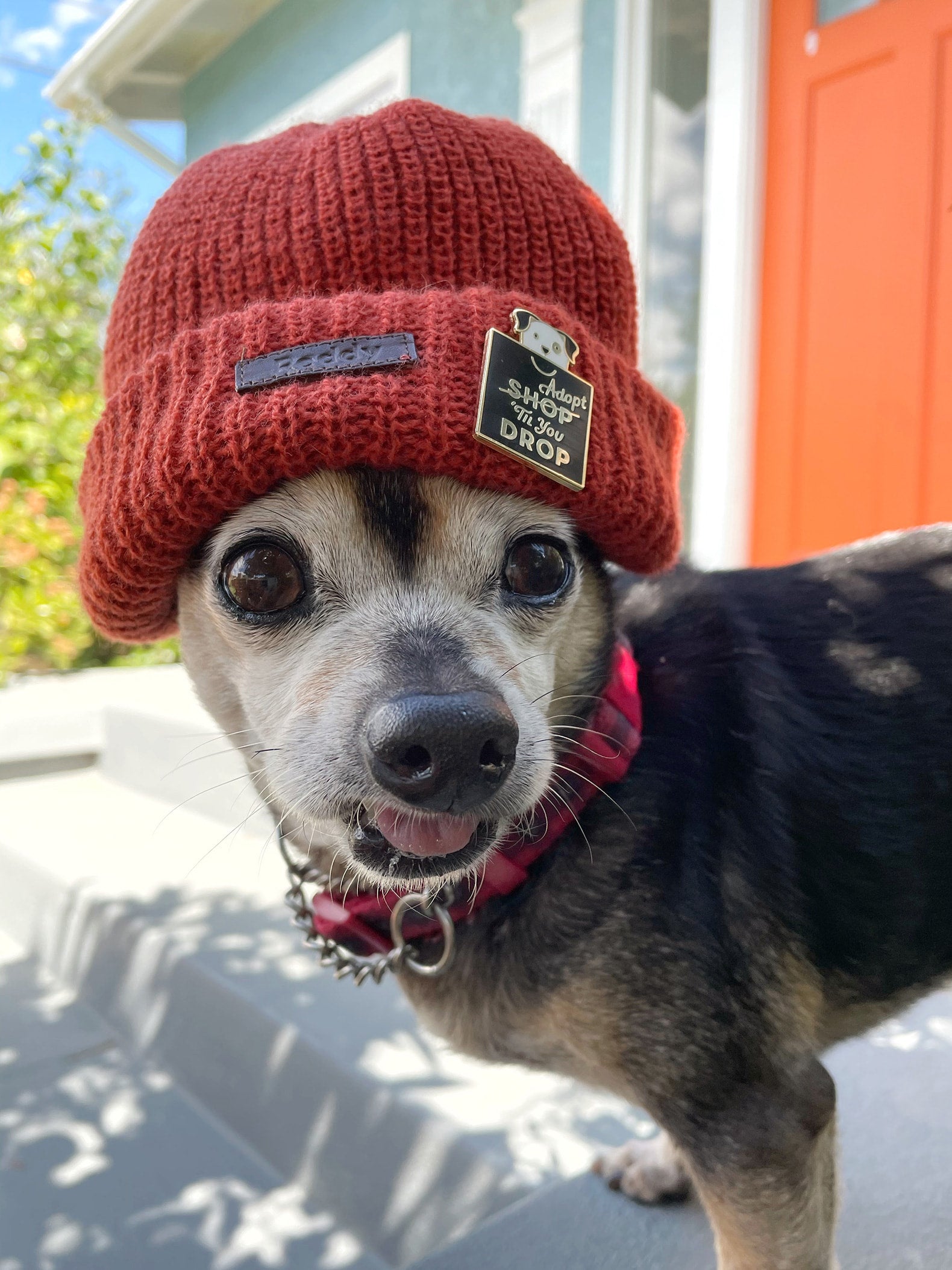This is Fostering: The Best Years

Sharing her fostering stories of a medley of adorable little weirdos is Ja-Shin Mercado, co-founder of Unfurgettable Goods and consummate foster momma, who’s successfully fostered and adopted out a number of dogs for several Los Angeles-based animal rescues! We’re so grateful to share her personal stories and wisdom with you.

How many years have you been fostering?
Over four years now, and it's been some of the best years of our lives. :)
Which foster(s) have been the hardest and why?
The hardest was our foster Tinsel, who ended up being diagnosed with severe IBD (Inflammatory Bowel Disease) combined with a rectal stricture. It required waking up multiple times in the middle of the night to take him out to potty; he was such a good boy and would tell us when he had to go since he preferred going outside if he could help it. It was much like having a newborn baby, which we weren't exactly prepared for. I, admittedly, had a few breakdowns, but we just kept adapting because the joyful moments outweighed the difficult ones. Tinsel was an amazingly spunky and sweet little man despite what he was going through, and he taught us so much. It was extremely tough when we had to send him to doggie heaven last year, and talking about it still makes me cry. We weren't able to save him, but I'm grateful we were able to provide a loving home for the last few months of his life. We officially adopted him after his passing so that he would always have a forever home.

I don't want to scare anyone away from fostering, though. There are so many "easy" dogs that need foster homes. Most of our fosters have been relatively easy. We've had to train a couple out of their separation anxiety, but, for us, part of the joy in fostering is being able to help these dogs overcome their issues so that they're more adoptable.
What advice would you give to others thinking about fostering, particularly for those who already have pets in the home?
I guess I should first say that my advice applies to those who want to foster dogs since I don't know what it's like to foster cats, rabbits, etc. :) So, if you're interested in fostering dogs...
- Make sure you can really commit to it. While some dogs get adopted within days or weeks, others may take a few months or longer to get adopted. Dogs are very adaptable and forgiving (which is what makes them so special), but providing a stable environment is much better than bouncing them around to multiple foster homes. Also, since most rescue organizations are pulling dogs straight from the shelter, it's tough for them to know if a dog is already house-trained. You might luck out like we have, but be prepared for accidents and to do some training.

- Make sure bringing in a foster dog won't cause undue stress on your current pets and that your pets can at least co-exist with other dogs. The last thing you want is for anyone to be unhappy or for a fight to break out.
- Communication is key. When you're filling out the foster application, be specific and provide as many details as possible about your lifestyle and your pets so that the rescue can match you with an appropriate foster dog. Once you have a foster dog in your home, keep the lines of communication open with the rescue, especially if you're having any issues. Most rescues should be able to provide advice or connect you with a trainer, if needed. And, if it turns out that the foster dog really isn't working out in your home, it's okay. You want the experience to be enjoyable and successful for all involved.
Rescue animals, in our opinion (and no doubt yours) are the most special. Can you give us your pitch as to why people should *adopt and not shop*?
Oh boy, this is tough because my social media feeds are still inundated with people's newly-purchased puppies. When you know that there's a pet overpopulation issue, that millions of cats and dogs enter the shelters each year, and that millions of them are subsequently killed partially due to the lack of space, why wouldn't you adopt a pet instead of buying one? Would you rather be saving a life and helping to solve a problem or contributing to one?
